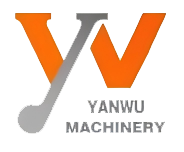How to Choose a Forming Machine for Custom HIGHWAY GUARDRAIL?
Highway guardrails play a crucial role in road safety by preventing vehicles from veering off the road and reducing accident severity. The production of these guardrails requires precision, durability, and customization to meet diverse installation environments and safety standards. Choosing the right forming machine for custom highway guardrail manufacturing is essential to ensure product quality, operational efficiency, and cost-effectiveness.
This article delves into the key considerations manufacturers should take into account when selecting a forming machine tailored for custom highway guardrails, highlighting factors from machine capabilities to material compatibility and automation.
Understanding Production Requirements
Assessing Guardrail Design and Customization Needs
Custom highway guardrails often vary in profile shapes, sizes, and thicknesses based on specific road conditions and regulatory requirements. When choosing a forming machine, it is critical to ensure that the equipment can handle the required profiles accurately. Machines with flexible tooling or modular designs allow easy adaptation to produce various guardrail designs without extensive downtime.
Evaluating Production Volume and Speed
Production capacity is another important factor. Manufacturers must consider whether their production will focus on small custom batches or large-scale continuous runs. A forming machine with adjustable speed settings and robust feeding systems can accommodate both scenarios, allowing for efficient operations regardless of order size.
Key Technical Features to Look For
Material Compatibility and Handling
Highway guardrails are commonly made from galvanized steel or other corrosion-resistant metals to withstand environmental exposure. A forming machine selected for this purpose should support the thickness and type of materials you intend to use. Proper feeding mechanisms and roller hardness are essential to maintain metal integrity during forming.
Precision and Consistency in Forming
Guardrails must meet stringent dimensional tolerances to fit installation requirements perfectly. The forming machine should employ precision-engineered rollers and synchronized drives to ensure consistent profile shapes across long production runs. Consistent forming reduces waste and minimizes the need for post-production adjustments.
Automation and Integration Capabilities
Automated Cutting and Punching Systems
Integrating cutting and punching systems directly into the forming line improves efficiency by reducing manual intervention. Automated length cutting and hole punching for bolt attachments streamline workflow and ensure repeatability, which is critical for custom guardrail orders.
User-Friendly Control Systems
Modern forming machines often come equipped with programmable logic controllers (PLC) and touchscreen interfaces, enabling operators to easily adjust parameters for different guardrail profiles. These control systems facilitate quick setup changes, reduce errors, and enhance production flexibility.

Maintenance and After-Sales Support
Ease of Maintenance
Selecting a forming machine with accessible components and clear maintenance protocols reduces downtime and extends machine life. Regular lubrication, timely roller inspections, and component replacements should be manageable without requiring extensive technical expertise.
Reliable Technical Support and Training
A strong after-sales service network is invaluable for troubleshooting, spare parts supply, and operator training. Choosing manufacturers who provide comprehensive support ensures your forming machine operates smoothly throughout its lifespan.
Conclusion – Make an Informed Investment for Custom Guardrail Production
Choosing a Forming Machine for custom highway guardrail production requires balancing technical capability, automation, and operational needs. The right machine will deliver precision, efficiency, and adaptability to meet evolving market demands and regulatory standards.
Investing in a high-quality forming machine enhances your manufacturing competitiveness and ensures that your guardrails consistently contribute to road safety and infrastructure reliability.
FAQ
Can a forming machine produce different guardrail profiles?
Yes, machines with modular tooling and adjustable rollers can switch between multiple guardrail designs efficiently.
What materials are suitable for custom highway guardrail forming?
Common materials include galvanized steel and other corrosion-resistant metals; ensure your machine supports your material specifications.
How important is automation in guardrail forming?
Automation improves precision, reduces labor costs, and increases production speed, making it highly beneficial for custom orders.
What maintenance is required for forming machines?
Routine tasks include cleaning, lubrication, roller inspection, and timely replacement of worn parts to maintain optimal performance.

 EN
EN



















